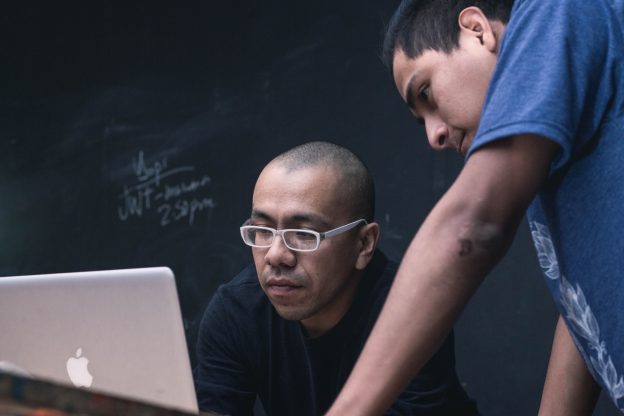-

Supporting the region’s STEM teachers: Professional learning built on collaboration, enquiry, innovation and trust
The Wipro Teacher Fellow and Teacher Mentor Programme is an evidence-based, individualised programme of professional learning designed to improve primary and secondary teachers’ confidence, motivation and capability in one or more of the STEM subjects.
-
Flouting the rules on Covid-19: Things the Government could learn from schools about behaviour management
With ‘lockdown’ well-established, no-one can be in doubt about Government rules and guidelines. However, only recently the BBC News reported anti-social behaviour being on the increase. There will be those who always misbehave, however, daily I see larger than permitted groups of, I am sure, ‘normally law-abiding citizens’ gathered, playing, or simply enjoying the recent…
-
Covid-19 and the Battle for the Control of Teaching
Since the start of the Covid-19 crisis, there has been a strong wave of public support for key workers and this has included teachers; for example, they are explicitly mentioned on the front page of the clap for our carers website. However there are widely differing views about the crucial role of schools and teachers…
-
Thinking about NQTs in the Covid Era
Covid-19 has brought such a range of challenges for everyone working in the education sector. This includes an important group who are feeling very vulnerable right now – those who are about to become Newly Qualified Teachers. We all know that education is going to be one of the most important features of the rebuilding…
-
05 Nov 2019; Turning the tide of BAME experiences: A call for waves not ripples
The recent report published by the EHRC1 (2019) ‘Tackling racial harassment: universities challenged’ has once again illuminated issues of racial discrimination in HE, ranging from explicit mistreatment to micro-aggressions. This is now a familiar story that recounts the negative experiences of BAME2 students in universities across the country. The EHRC (2019) study found that a quarter of ethnic minority…
-
International Quality Icons: The Case of Mickey Mouse
Mickey Mouse has been an international cultural icon for over ninety years. His image has been the trademark of the Disney Corporation since 1928 and the translation of his name is an global byword for fun ( Микки Маус, 米老鼠 , ميكي ماوس ). Inexplicably, since the nineteen seventies, “Mickey Mouse” has also been a…
-
Trends in Education, Effectiveness and Internationalization
It was snowing when we arrived. Thank goodness. Mid-February can be grey in Moscow and a fresh layer of snow refreshes both the Soviet-era apartment blocks and adds sparkle to the Orthodox domes above the Kremlin. You don’t want to travel to Russia without finding icicles, fur hats and clouds of condensed breath mixed with…
-
Postgraduate Research Culture at SIoE: What does it look like?
There are more than a few debates about what precisely constitutes a ‘positive research culture’. PGR students Arwa Omar and Ruth Squire, 2nd and 1st year PHD students in SIoE respectively and student representatives for the Institutes PhD students, looked at the importance of research culture at SHU for postgraduates following discussions in their regular PG…
-
Tackling the teacher recruitment crisis: Retention as recruitment
There is a crisis in teaching. The equation is fairly simple: Not enough people are coming into the profession to meet the growing number of pupils – and too many are leaving. The Department for Education’s (DfE) new Recruitment and Retention Strategy, published today (28 January 2019) faces the issue head on with clear priorities…
-

Uniformed or Uninformed?
Before Christmas I watched the short BBC 2 series “School” (https://www.bbc.co.uk/programmes/b0brj5df ). Of course TV programmes are made to grab headlines and increase ratings, so it’s not surprising that most of what was shown depicted “problems”, but even so, I was routinely horrified in at least 4 out of the 6 episodes to see the…
Got any book recommendations?